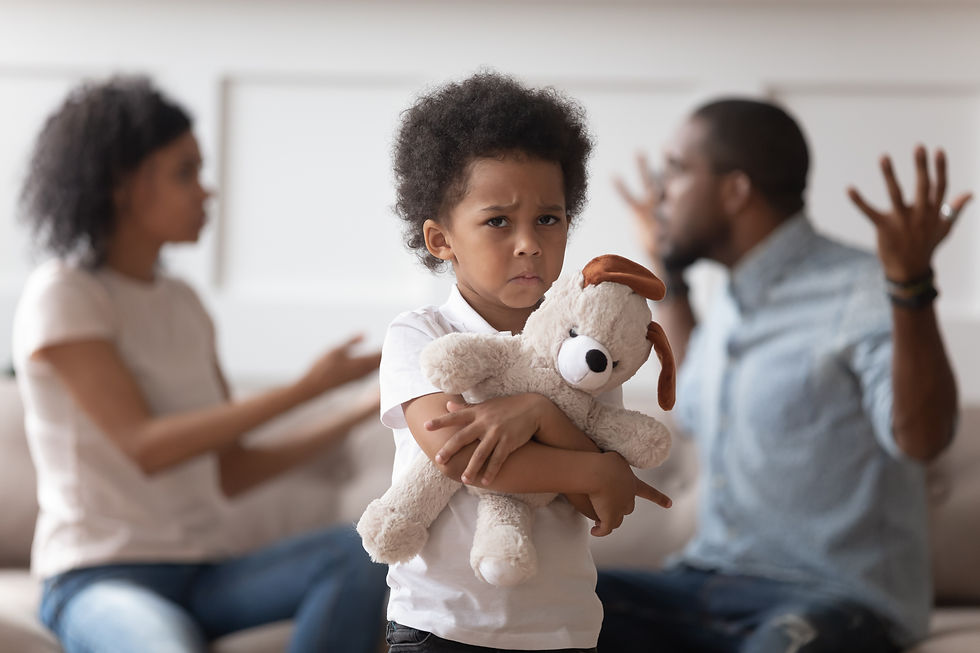The Lingering Shadows: How Past Trauma Impacts Family Relationships and Ways to Heal
- Maged Botros
- Sep 16, 2023
- 3 min read
Family, often considered a source of love, support, and solace, can also be a repository of unresolved traumas that cast long shadows over our lives. The intricate interplay between our past experiences and our present relationships can significantly impact our family dynamics, shaping the way we interact with our loved ones. In this blog post, we will explore how past trauma can influence family relationships and discuss strategies to mitigate these effects, fostering healing and healthier connections.

The Impact of Past Trauma on Family Relationships
Transgenerational Transmission: The scars of our past can reverberate across generations. Unresolved trauma experienced by our parents or grandparents can manifest in family patterns, affecting communication styles, coping mechanisms, and emotional responses. For instance, a parent who experienced childhood neglect might struggle with offering emotional support to their own children, perpetuating a cycle of emotional distance.
Communication Breakdown: Trauma often leaves emotional wounds that can make open and honest communication challenging. Individuals who have endured trauma might find it difficult to express their feelings, leading to misunderstandings and conflicts within the family. This breakdown in communication can create barriers and a sense of isolation among family members.
Attachment Styles: Our experiences shape our attachment styles—the way we connect emotionally with others. Trauma can result in insecure attachment styles, where individuals may struggle with trust, intimacy, and emotional vulnerability. These attachment patterns can contribute to issues within family relationships, making it harder to form close bonds.
Role Formation: Trauma can shape the roles family members adopt to cope with challenges. Some might become caretakers or people-pleasers to ensure stability, while others might adopt roles of rebellion or avoidance. These roles, while initially protective, can lead to strained dynamics and hinder genuine connections.
Mitigating the Impact of Past Trauma on Family Relationships
Self-Awareness: Acknowledging and understanding our own trauma is the first step towards healing. Self-awareness helps us recognize how our past experiences might be influencing our behaviors and interactions within the family. Engaging in introspection and therapy can aid in uncovering these connections.
Open Communication: Fostering healthy communication is essential. Encourage family members to share their thoughts and feelings without judgment. Creating a safe space where everyone feels heard can help break down walls and promote understanding.
Seeking Professional Help: Family therapy or counseling can provide a structured environment to address and work through shared traumas. A trained therapist can guide conversations, provide coping strategies, and facilitate healing discussions.
Setting Boundaries: Boundaries are crucial for protecting our emotional well-being. Learning to set healthy boundaries with family members is essential, especially when certain interactions trigger memories of past traumas.
Empathy and Compassion: Practice empathy towards family members who might also be carrying their own emotional baggage. Remember that everyone's journey is unique, and offering understanding and compassion can facilitate healing for all.
Breaking Patterns: Identify negative behavior cycles that have developed due to past trauma. Work together as a family to break these patterns by consciously adopting healthier communication styles and relationship dynamics.
The shadows of past trauma can cast long and intricate webs that entangle our family relationships. However, through self-awareness, open communication, seeking professional help, setting boundaries, and practicing empathy, we can begin to mend these wounds and reshape our family dynamics. Remember, healing is a gradual process, and with time, effort, and support, families can create a foundation of understanding, love, and resilience that paves the way for healthier, more fulfilling relationships.


